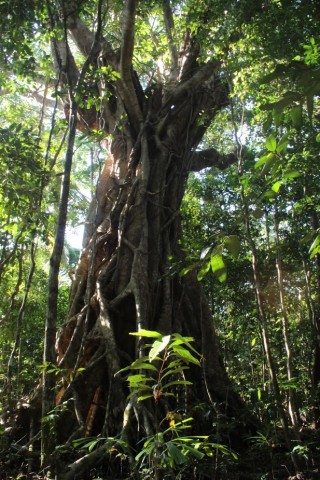Why we love the Queensland Wet Tropics

It will be no surprise to anyone who has visited the Wet Tropics World Heritage Area (WTWHA) that both visitors and the local Queenslanders love the place. The region is famous for its wildlife, biodiversity and natural beauty. Exactly how much we love it, and what in particular we love about it, is being studied by researchers at JCU. They found safety and being able to access quality infrastructures to be the most important factors, no matter who you are, or where you come from.
Natural assets like wildlife, scenery, waterfalls, the Great Barrier Reef or Aboriginal culture, are just some of the factors that affect how much people value a place where they live or visit. Many of these aspects of experience do not have a clear cut dollar value. Yet understanding what “value” experiences have is vitally important in ensuring that both managers and investors make good decisions about the future of the Wet Tropics.
Researchers in the project, “Relative social and economic values of residents and tourists in the Wet Tropics World Heritage Area” now have the results from just over 1000 detailed surveys that aim to find out what people care about and how they feel about their experience of the WTWHA.
A great result for north Queensland tourism was that over 80% of the visitors surveyed expressed satisfaction with their experience as a whole and found that it was above their expectations. Among the three survey groups (visitors, indigenous residents and non-indigenous residents) there were many commonalities. In particular time spent with family or friends was highly valued as was the safety of self and of travelling companions (Table 1).
The importance of natural values was paramount in both current experience and in the perception of change. Increased rubbish or a decline in water clarity would devalue the experience for all groups, and for visitors, “development” of natural scenery was undesirable.
Visitors spent most of their time enjoying the scenic beauty and peacefulness of the rainforest or driving along scenic routes. Environmental factors were important to all groups with the highest importance placed on qualities like scenic beauty and peacefulness, iconic species and the protection of both natural and indigenous culture and values.
Overall, the surveys are a treasure trove of information that provides a clear direction for the future of the region and of future research needs.





